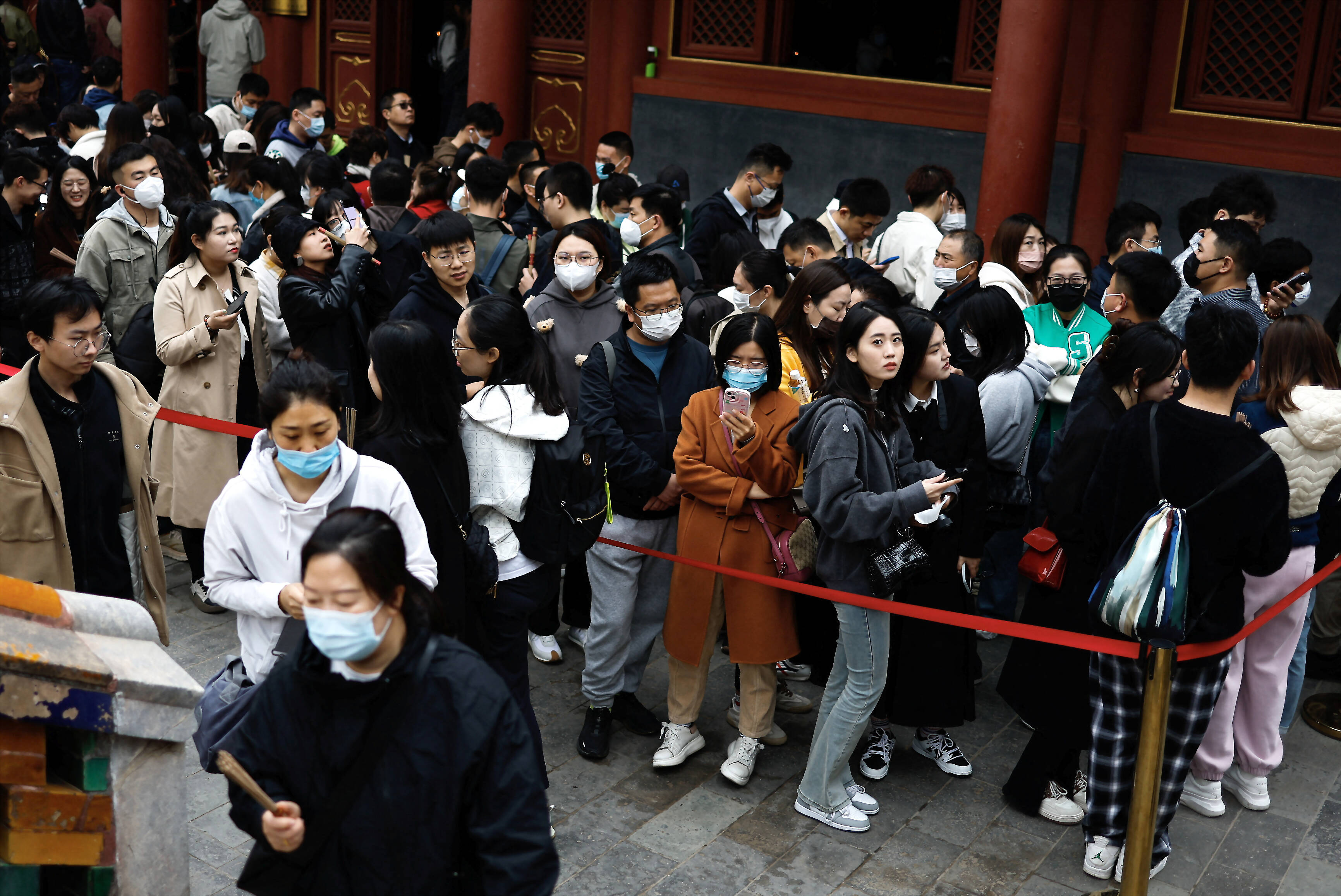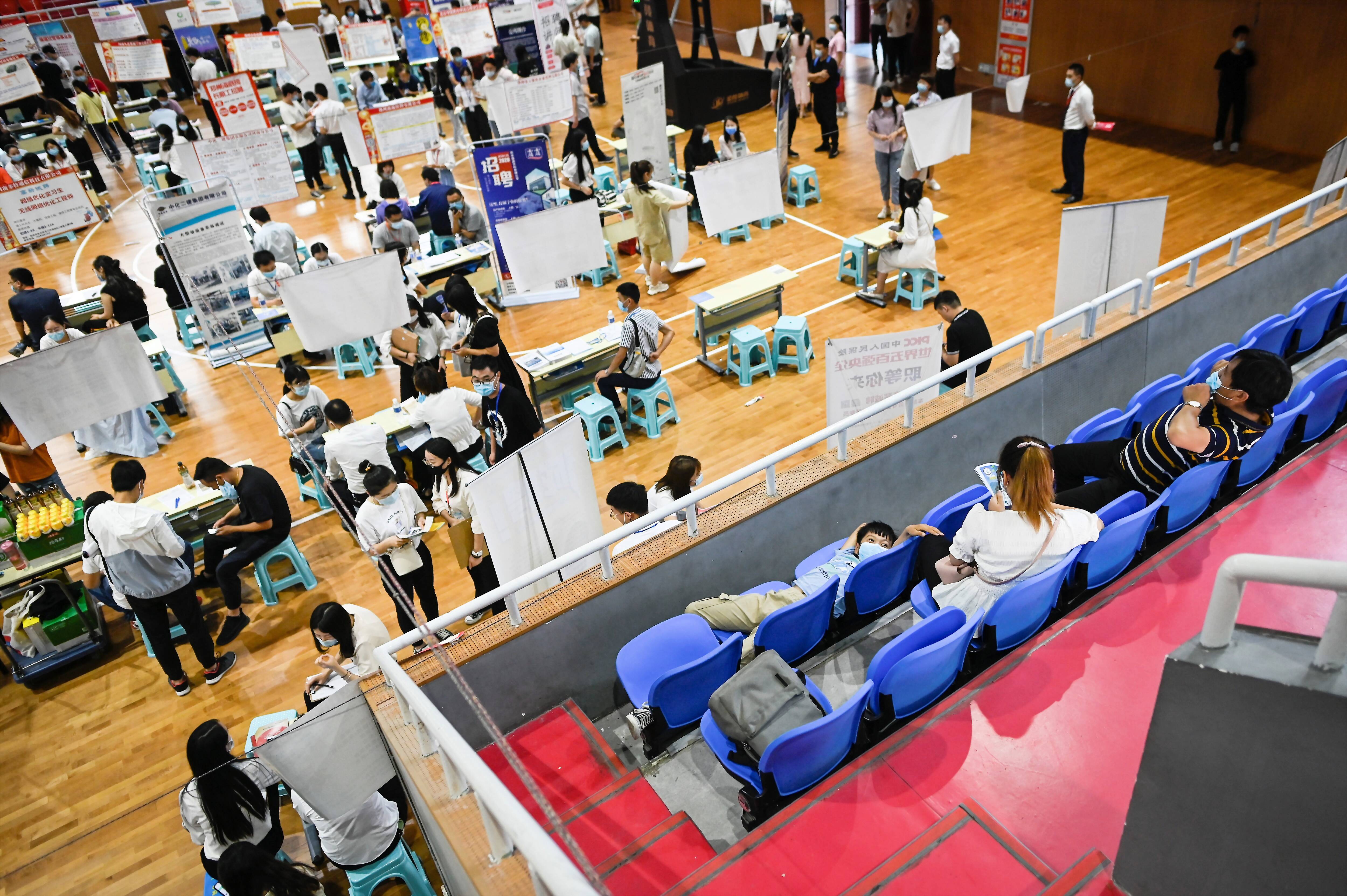
views
China’s economy is struggling to emerge from three years of “Zero Covid” lockdown as the growth rate remained below expectations despite a rebound in recent months.
The world’s second-largest economy showed further signs of weakness in the second quarter as the economy grew by 6.3 percent year-on-year missing expectations. However, the Chinese economy also showed a more troubling sign- record unemployment.
The unemployment rate has been a major concern for the country’s economy as the jobless rate has hit another record last month. The jobless rate among Chinese youth jumped to a record 21.3 percent in June, up from 20.8 percent in May, the National Statistics Bureau said.
China’s Rising Unemployment
While the government data said that the jobless rate of 16- to 24-year-olds in urban areas in China is at 21.3 percent in June, Peking University professor Zhang Dandan claimed that the youth jobless rate might have touched 50%.

Zhang further claimed that 16 million non-students were either “lying flat” at their homes or relying on their parents, therefore increasing the rate from 21.3% to 46.5%.
The rising joblessness comes at a time when a record 11.58 million even as lakhs of students are expected to graduate from colleges and enter the job market this year.
???????? China's youth unemployment rate.December, 2022: 16.7%
January, 2023: 17.3%
February, 2023: 18.1%
March, 2023: 19.6%
April, 2023: 20.4%
May, 2023: 20.8%
June, 2023: 21.3%
— The Spectator Index (@spectatorindex) July 18, 2023
China has been reeling from rising unemployment rate since earlier this year as the joblessness among urban youths was 18.1% in February, 19.6% in March, 20.4% in April, 20.8 percent in May and 21.3 percent in June, according to the date from National Bureau of Statistics.
Why has Youth Unemployment Risen So Much?
One of the easiest answers to the problem is because of a mismatch between the jobs young people are studying for and the roles that are available, according to Goldman Sachs Research.

Young people are more vulnerable during economic downturns as they have less work experience and the vulnerability has been amplified by the pandemic. The industries and sectors that hired more young workers were the worst affected during the pandemic.
Moreover, there has been a mismatch between the job creation and admission rate in case of some subjects. For instance, the number of graduates in education and sports subjects grew by over 20% in 2021 compared to 2018, but the hiring demand weakened over the same period.
What is China Doing to Address Unemployment
The Chinese authorities have admitted that youth unemployment will continue to rise in the coming months and reach a peak around August.

In March, the Communist Youth League urged young people to “take off their suits, roll up their sleeves, and go to the farmland.” Chinese President Xi Jinping in December last year also called for urban youth to seek jobs in rural areas to revive the rural economy. He said that the new graduates must “eat bitterness,” a local expression for enduring hardships.
In April, the government announced policies designed to stimulate the jobs market, including subsidies for companies that hire unemployed university graduates. The government also wants state-owned companies to recruit 1 million trainees in 2023 and has set an overall target of creating 12 million urban jobs this year, up from 11 million in 2022.
‘Full-time children’
In recent months, the Chinese social media platforms are full of hashtags #FullTimeDaughter and #FullTimeSon. As the youth unemployment becomes a serious challenge for the country, the adult children are hired by their parents to do housework and offer other help whenever required.
Jia Zhang, who used to run her own small business in Zhejiang, left her job after it was hit hard by the Covid-19 pandemic. She now works for her parents full time and gets a salary of 8,000 yuan ($1,115) a month, which is around the average salary in China, NBC news reported.
“My job is to spend time with my parents — for example, taking them to grocery stores — and do some household chores,” Zhang reportedly said.
“Also, if my parents want to go out, I would make plans in advance, taking them to various stores,” she added.
There are many like Jia Zhang who call themselves full-time children as it is increasingly hard to find a decent job in China.

















Comments
0 comment